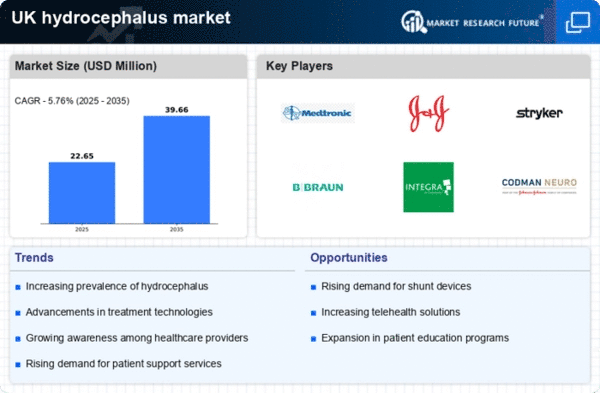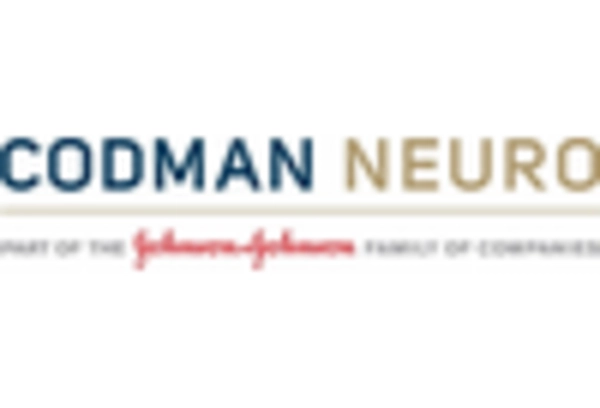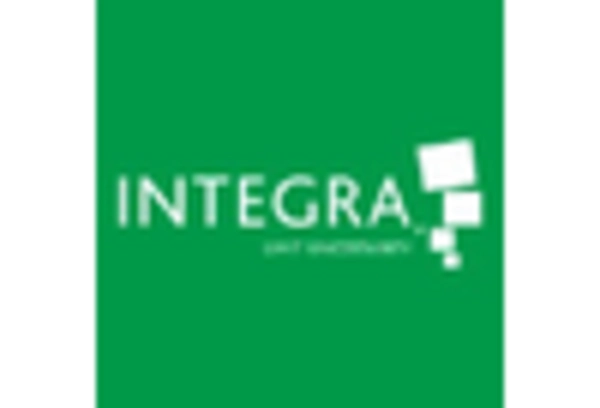Government Funding and Support
Government funding and support for research and treatment of hydrocephalus are crucial drivers of the hydrocephalus market in the UK. Initiatives aimed at improving healthcare access and funding for innovative treatments are becoming more prevalent. For instance, the UK government has allocated substantial resources to neurological research, which includes studies focused on hydrocephalus. This financial backing not only fosters innovation but also encourages collaboration between public and private sectors. As a result, the hydrocephalus market is likely to see an influx of new products and therapies, enhancing treatment options for patients and potentially increasing market size.
Growing Patient Advocacy Groups
The emergence of patient advocacy groups dedicated to hydrocephalus is influencing the hydrocephalus market in the UK. These organizations play a vital role in raising awareness, providing education, and supporting research initiatives. By advocating for better treatment options and funding, they help to create a more informed patient population. This increased awareness can lead to earlier diagnosis and treatment, which is essential for improving patient outcomes. Consequently, the hydrocephalus market may experience growth as more individuals seek medical assistance and as healthcare providers respond to the demand for improved care and resources.
Rising Incidence of Hydrocephalus
The hydrocephalus market in the UK is experiencing growth due to the rising incidence of hydrocephalus cases. Recent data indicates that approximately 1 in 1,000 live births are affected by this condition, leading to an increased demand for effective treatment options. As awareness of the condition grows, healthcare providers are more frequently diagnosing hydrocephalus, which in turn drives the need for innovative therapies and surgical interventions. The hydrocephalus market is likely to expand as more patients seek treatment, and healthcare systems adapt to accommodate this growing patient population. This trend suggests a potential increase in market revenue, as the demand for specialized medical devices and surgical procedures rises.
Advancements in Surgical Techniques
Innovations in surgical techniques are significantly impacting the hydrocephalus market in the UK. Minimally invasive procedures, such as endoscopic third ventriculostomy, have gained traction, offering patients safer and more effective treatment options. These advancements not only improve patient outcomes but also reduce recovery times, which is appealing to both patients and healthcare providers. The hydrocephalus market is likely to benefit from these developments, as hospitals and clinics invest in new technologies and training for medical professionals. Furthermore, the increasing success rates of these procedures may lead to a higher number of patients opting for surgical intervention, thereby driving market growth.
Integration of Telemedicine in Care
The integration of telemedicine into healthcare services is transforming the hydrocephalus market in the UK. Telehealth solutions enable patients to access specialist consultations and follow-up care from the comfort of their homes, which is particularly beneficial for those with mobility challenges. This shift towards remote care is likely to enhance patient engagement and adherence to treatment plans. As telemedicine becomes more widely accepted, the hydrocephalus market may see an increase in patient satisfaction and improved health outcomes. Additionally, healthcare providers may find that telemedicine reduces costs associated with in-person visits, further driving the market's growth.
















